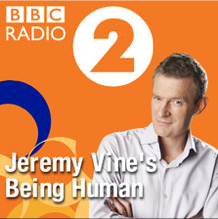I was looking for a podcast to listen to on a run last night. Being a fan of the Jeremy Vine show on Radio 2 I searched and found a series of podcasts by Jeremy Vine called Being Human. With contributions from leading thinkers and writers these podcasts explore just what makes us human. I listened to the episode featuring Lord David Puttnam, a British film producer and educator.
Being human is remaining curious about the world, and remaining ambitious for what your contribution can be. (Lord Puttnam)
He spoke of the 2012 Olympics and how people collectively worked to make a success of the Games – the Games brought out the best in us, but it was always there! If you smile at someone, they generally smile back. We are all capable of doing the very best we can. We should never lose sight of this. Lord Puttnam and Jeremy Vine end the episode discussing the importance of focussing on doing the right thing and building each other up. This reminded me of a quote I once read:
Be kind whenever possible. It is always possible. (Dalai Lama)
This episode was a great encouragement and reminder that … Read more...
